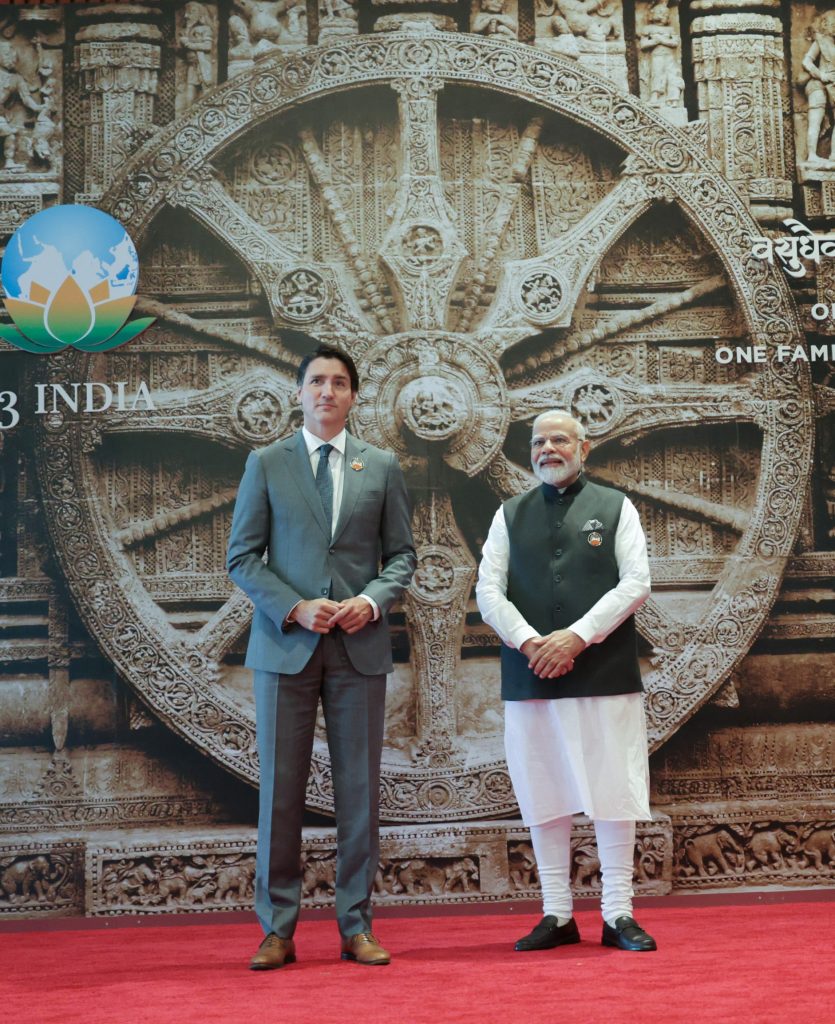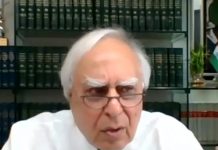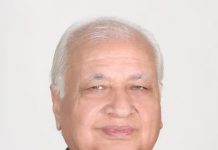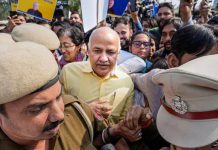
Has the Indian media allowed itself to play into the hands of separatist Khalistanis by blowing the ongoing stand-off between India and Canadian PM Trudeau over the killing of Sikh radical Nijjar out of proportion?
It is estimated that the total Indian presence in Canada is about 1.85 million or 5.1 per cent of the country’s population. The deep cultural and political ties between Canada and India are being further strengthened by a growing network of official dialogues, agreements, memoranda of understanding and working groups.
They work in key areas such as foreign policy, trade and investment, finance and at the official-level the two countries have regular working groups that focus on such sensitive issues like counter-terrorism and security. It may also be recalled that underCIRUS (Canada India Reactor Utility Services), India’s first nuclear research reactor was set up at the Bhabha Atomic Research Centre in Trombay near Mumbai in 1954.
However, during the recent weeks, a section of Indian media is seen indulging in publishing news about the growing rift between India and Canada, which many believe is uncalled for.
There could be many dimensions of this sudden decline in the relationship between the two countries, especially when they are witnessing low-tide in their close ties caused by some frivolous reasons in recent weeks. Apart from the sudden rise of the Sikh separatists under the banner of the Khalistani movement, the enthusiasm or yearnings of a section of Indian media projecting Indian PM Narendra Modi in his ‘macho avatar’ too could be one of the reasons. In a bid to project Modi as an invincible nominee in media for the top office for the 2024, the key issues regarding international relations and economics are being often compromised.
There is no denying that the strong presence of the Khalistanis in Canada has been adversely influencing Canada’s political system. Since India and Canada are committed to fight against terrorism and they already have a working group, it is being rightly asked why this mushrooming of radical Sikh groups was being allowed. It shows Indian diplomacy in poor light that before the candid talks between Modi and the Canadian PM on the sidelines of G-20, the Indian high commission did not address the strong Indian presence in the host country, thus enabling a small minority of the separatists to affect the ties of two countries.
It is often stated that successive governments in New Delhi as well as the incumbent one seldom cared about the play of the international forces in embarrassing India by harnessing these separatists for their agenda. It is quite known that with their help, China and Pakistan are propelling the anti-India narrative and even harnessing the western media. Instead of working out a well-planned strategy to tackle this challenge, a section of Indian media’s recent observations have not only reached to ridiculous heights, their keenness of replicating Dragon’s ‘Wolf warrior diplomacy’ also appears to be undermining the country’s long-term interests as well as immediately hurting Indian diplomacy known worldwide for its soft power and elegance.
In China, president Xi Jinping has adopted this ‘coercive diplomacy’ opposed to the policies of his predecessors, Deng Xioping and Hu Jintao. In India, nearly 10 years after the regime of Prime Minister, Manmohan Singh, who had been known for his emphasis on cooperation and the avoidance of unnecessary controversies, the present establishment appears to be toeing Beijing’s new policy. Most of the old hands in New Delhi, known for their expertise in foreign affairs, do not subscribe to this confrontational and combative approach in international relations, especially in the context of a friendly country like Canada.
The recent efforts of the pro-ruling party or the Modi-bhakta in the media trying to use it as yet another effort for projecting Modi as a knight errant like Don Quixote to be always seen in shining armour. For the ruling party, Modi has to project an all-weather political brand. Interestingly, these propaganda channels have been trumpeting for Modi since the conclusion of the after G-20 Summit in September this year. It, perhaps, is being done for projecting Modi as an invincible world leader for the 2024 polls.
The Unnecessary Rhetoric
Modi’s tenure as the country’s PM, since 2014, will be remembered for its noisy rhetoric. The noisy television debates appear to have eclipsed serious media debates about the issues related to governance. This decline has not come suddenly. Either the government or its cronies in the corporate world are known to be quietly nibbling the country’s freedom of expression. It, perhaps, had begun six years ago with the unceremonious sacking of Paranjoy Guha Thakurta, editor of Economic & Political Weekly (EPW) for exposing Adani Power’s tax evasion. The group emboldened by its masters in the government has recently taken over NDTV.
The suspicion of the growing nexus between the corporate and the powers that be in New Delhi is now being reconfirmed with a few media platforms rallying in support of Adani Group. They are also accusing anyone questioning the financial deals of the corporation being branded anti-national! They are also hopeful of manipulating the proceedings pending before the Supreme Court regarding the alleged financial bungling being exposed in the Adani-Hindenburg case. The inability of the Securities and Exchange Board of India (SEBI) to file the status report about the case has delayed its final hearing. The SEBI has now informed the Supreme Court that it has completed the probe in all but two allegations against the Adani group, and is still awaiting information from five tax havens on the actual owners behind the foreign entities that have invested in the conglomerate. As expected, on its part, the Adani group has rejected all allegations.
Erosion of Key Institutions
The rise of the government-friendly media, which has already eclipsed quality journalism, is now adversely affecting the key areas of strategic and foreign affairs. The decline is also accompanied by the erosion of the role of the established institutions such as Comptroller and Audit General or the dilution of the Right to Information Act (RTI) 2005.The Digital Data Protection legislation is yet another reminder of the colonial era, when the official secrecy had to be imposed for subjugating the Indian subjects of the British crown. Another example is the dumping of the Planning Commission. It has now been replaced by National Institution of Transforming India (NITI), a toothless body. The present government, thus, has cleverly eliminated from the public domain the process of evaluating all of the country’s resources, replenishing those that were insufficient,
The Diplomacy
The perennial mission of branding Modi as political rhetoric is now adversely affecting the sensitive issues related to foreign policy. The country appears to be always in an election mode. Interestingly, the political slogans generally earmarked for domestic politics were much pronounced during the G-20 Summit in New Delhi. The Indian media’s over indulgence accompanied by hyperboles towards the ruling establishment, especially Modi as the brand, has diverted the issues necessary for the country’s vital interests. The Indian media has never discussed why the Chinese President, Xi Jinping, did not attend the G-20 summit.
Facts are Facts
Indian diplomacy accompanied by strong media support has always enjoyed worldwide respect for projecting Indian issues in a logical framework without compromising truth or indulging in unnecessary rhetoric. However, instead of giving a befitting reply to the separatists active under the banner of Khalistan, the Indian media has been focusing on the stand-off between Modi and the Canadian PM Justin Trudeau on the issue of reining in the Khalistanis. It has allowed the assassination of the Khalistani terrorist Hardeep Singh Nirjhar in British Columbia in Canada to become a human rights issue. But our diplomacy could not tackle or even register a case against the Khalistani terrorist, Gurpatwant Singh Pannum for threatening Modi, Home Minister, Amit Shah, and External Affairs Minister S. Jaishankar .













